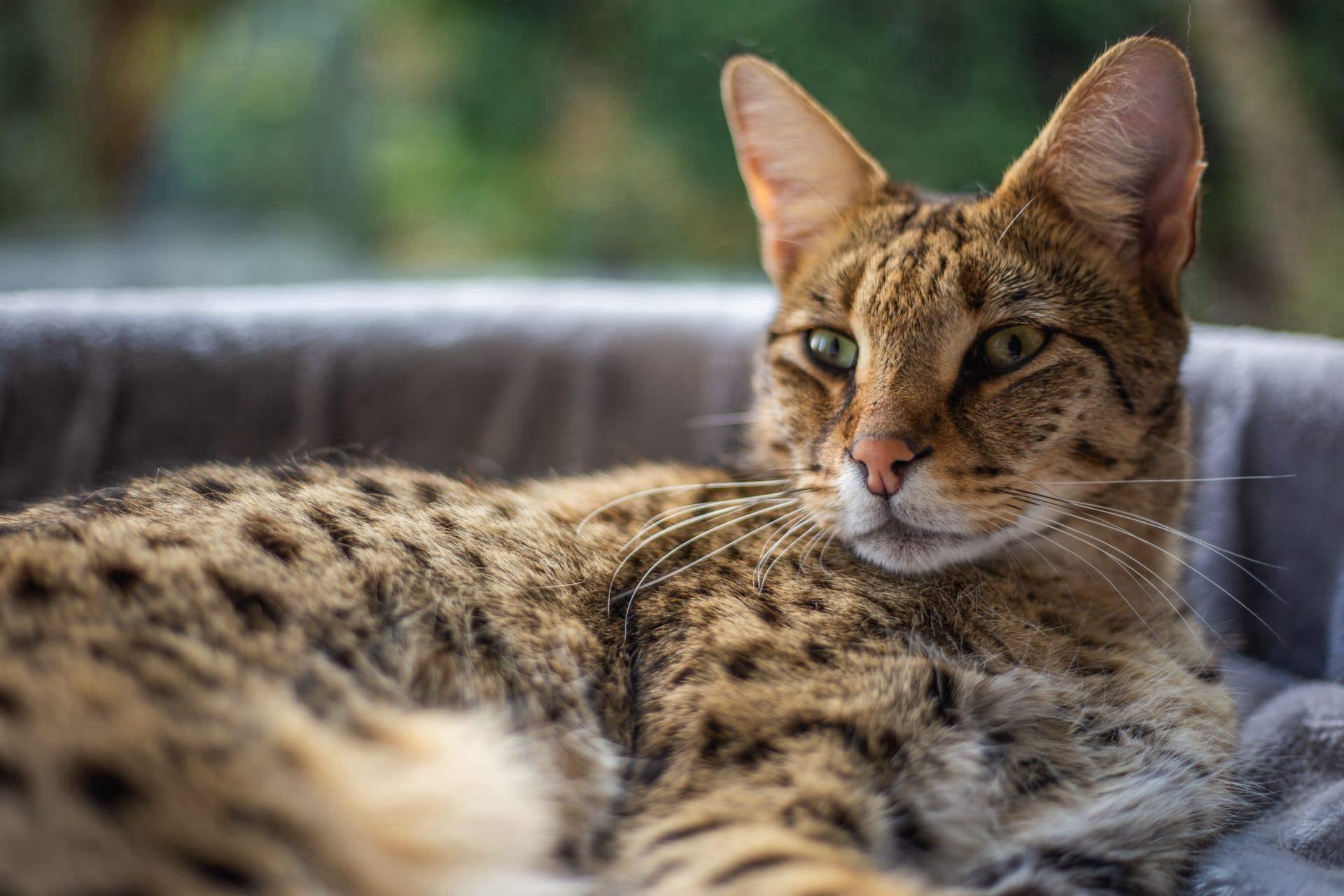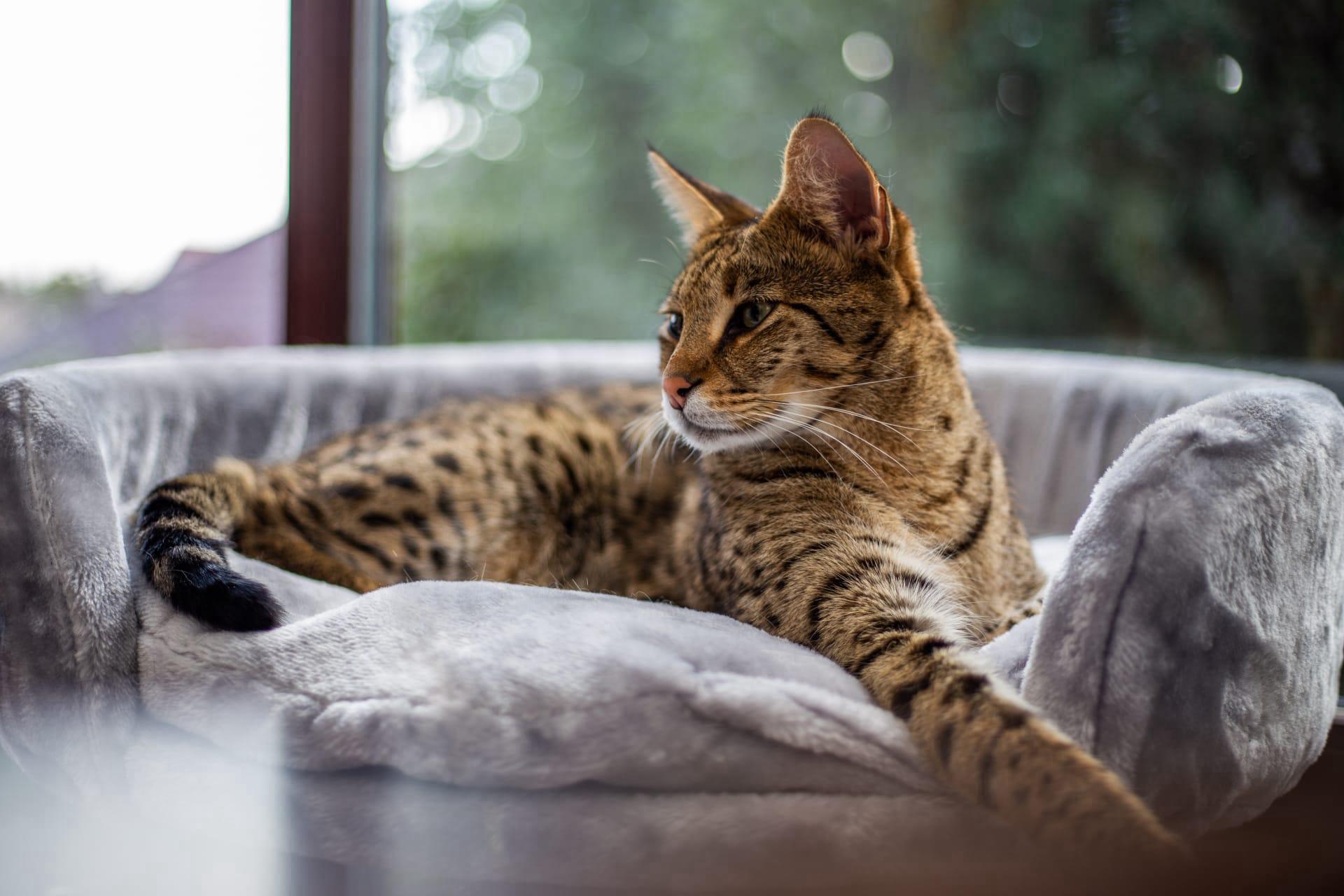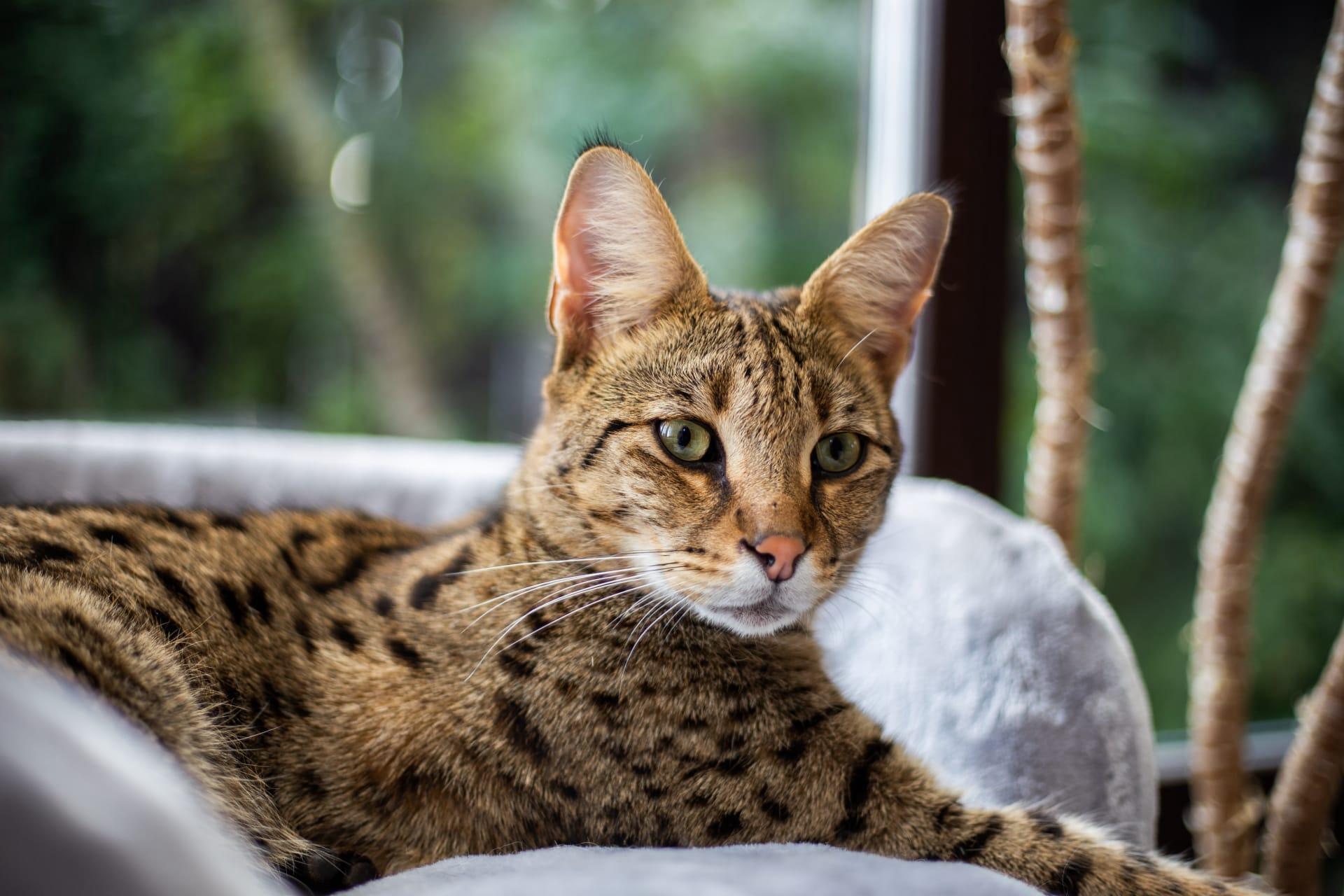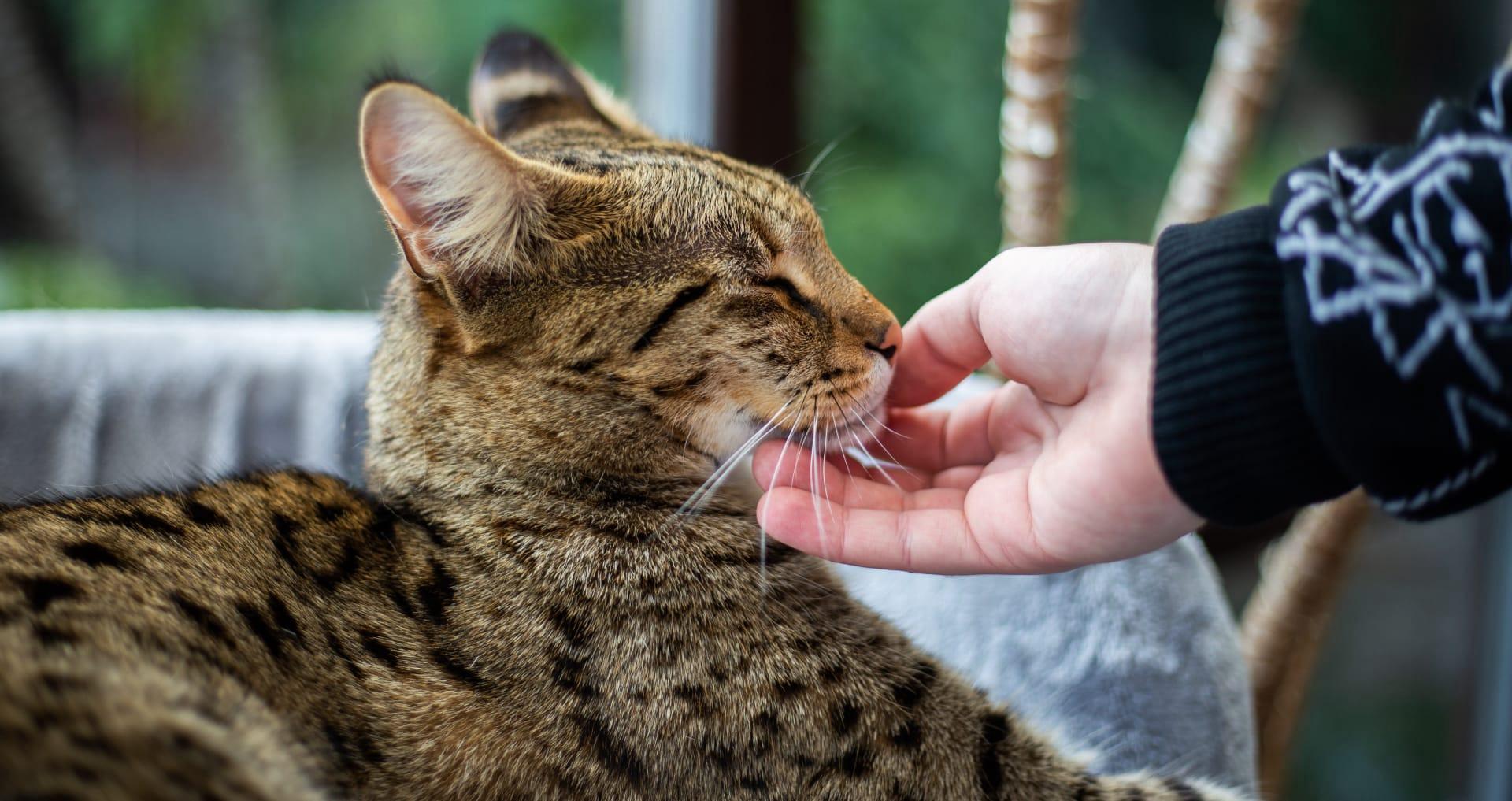Savannah Cat Trivia
- Home /
- Trivia Question /
- Animal /
- Savannah Cat Trivia
1
Question: What exactly is a Savannah cat, and how does it differ from other domestic cats?
Answer: A Savannah cat is a hybrid breed, resulting from crossing a domestic cat with an African serval. These cats are known for their large ears, long legs, and spotted coats, resembling their wild ancestors. Unlike typical domestic cats, Savannahs can be much larger, with some reaching up to 17 inches at the shoulder and weighing between 12 to 25 pounds. Their unique genetics give them an impressive jumping ability, often able to leap over 8 feet horizontally from a standing position.
Question: How long do Savannah cats typically live, and what are their care requirements?
Answer: Savannah cats have a lifespan of 12 to 20 years, which is similar to domestic cats but requires specific care due to their unique heritage. They need a high-protein diet, ample space to explore and exercise, and regular interaction with their owners to satisfy their social and physical needs. Due to their active nature, Savannahs also benefit from environmental enrichment like climbing structures, interactive toys, and puzzles to keep them mentally stimulated.

2
Question: Is it true that Savannah cats are wild and dangerous pets?
Answer: This is a common misconception. While Savannah cats do have a wild ancestor, they are bred to be companion animals. The level of wildness decreases with each generation removed from the serval. F1 and F2 generations (first and second generations from the serval) may retain some wild traits, but by the time you reach F3 and beyond, Savannah cats are much more akin to typical domestic cats in temperament, showing loyalty, playfulness, and even a dog-like affinity for walks and games of fetch.
Question: Can Savannah cats get along with other pets and children?
Answer: Yes, with proper socialization, Savannah cats can get along well with children and other pets. They are known for their social and outgoing nature. Early exposure to various situations, people, and other animals can help ensure they grow up to be well-adjusted pets. However, their playful and energetic demeanor means they might do best in homes where they can be the center of attention or among pets that match their energy levels.

3
Question: What are the legal restrictions associated with owning a Savannah cat?
Answer: The legality of owning a Savannah cat varies by location due to their hybrid status. Some regions may have bans or restrictions on certain generations of Savannah cats, particularly the F1 and F2 generations, which are closer to their wild ancestors. It's essential for potential owners to check local wildlife and pet ownership laws before acquiring a Savannah cat to ensure compliance with local regulations.
Question: How does the personality of a Savannah cat compare to that of a typical domestic cat?
Answer: Savannah cats are often more energetic, curious, and adventurous than the average domestic cat. They possess a strong hunting instinct and love to explore their surroundings. Savannahs are also highly intelligent and can learn tricks, walk on a leash, and even play fetch. Their social nature means they often seek interaction and companionship from their owners, making them more akin to dogs in some behavioral aspects.

4
Question: What are the health considerations specific to Savannah cats?
Answer: Savannah cats are generally healthy, but like all breeds, they can be prone to certain health issues. These may include heart problems, such as hypertrophic cardiomyopathy, and genetic conditions like pyruvate kinase deficiency, which affects red blood cells. Regular veterinary check-ups, a balanced diet, and a healthy, active lifestyle can help mitigate these risks and ensure a Savannah cat lives a long, healthy life.
Question: How do Savannah cats communicate with their owners?
Answer: Savannah cats use a variety of vocalizations, body language, and behaviors to communicate. They may chirp, a sound inherited from their serval ancestors, meow, and purr to express their needs and emotions. Additionally, they use body language such as ear position, tail movements, and facial expressions. Savannahs are also known for their high energy and playfulness, often initiating games and interactions to engage with their owners.

5
Question: Can Savannah cats be trained to use a litter box and perform tricks?
Answer: Absolutely. Savannah cats are highly intelligent and trainable, often learning to use a litter box from a very young age with proper guidance. They can also be taught a variety of tricks, such as sitting, fetching, and even walking on a leash, thanks to their sharp minds and eagerness to please. Consistency, patience, and positive reinforcement are key in training Savannah cats.
Question: What is the environmental impact of owning a Savannah cat?
Answer: Owning a Savannah cat does have an environmental consideration, primarily related to the demand for hybrid animals and the potential for invasive species if not properly managed. Responsible ownership involves ensuring that Savannah cats do not negatively impact local wildlife, keeping them indoors or in secure outdoor enclosures to prevent hunting and interaction with native species. Additionally, choosing to adopt from reputable breeders who follow ethical breeding practices can help minimize negative environmental impacts.